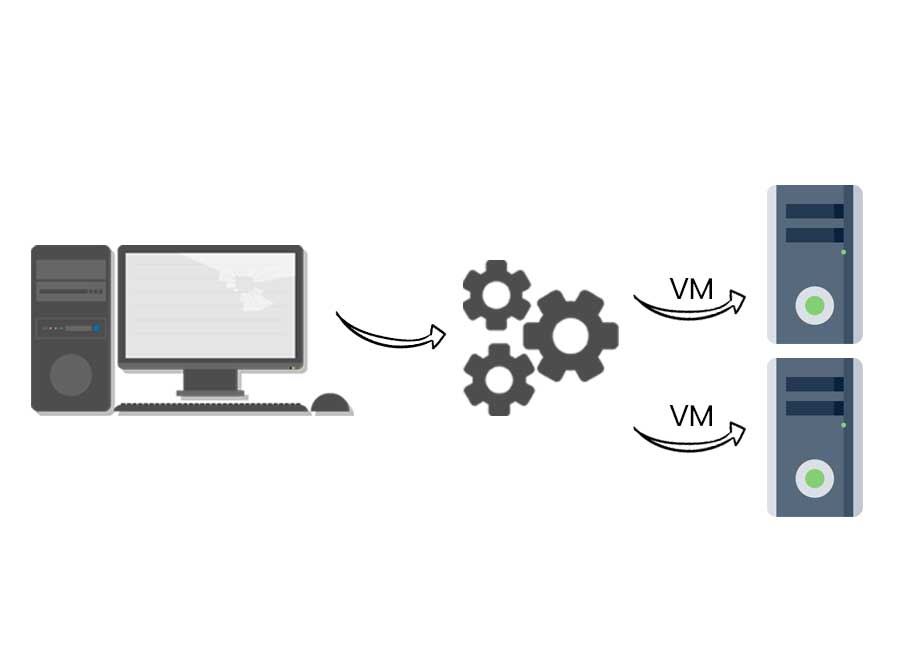Choosing the Right Law Practice Management Software

Mastering Web Security Protocols: A Comprehensive Guide
October 4, 2024
WooCommerce or Shopify: Choosing the Right Platform for Your Online Store
October 25, 2024In today’s fast-evolving world of law, where time is crucial and the pressure is immense, the right tools can make all the difference. Consider a comprehensive software solution that perfectly performs all your daily operations, opens the door to improved customer relations, and increases your organization’s productivity. As law firms handle more cases and face tighter deadlines, choosing the right practice management software becomes essential. It’s not just about choosing a tool. It’s about finding one that will help your firm work more efficiently and better serve its clients. Whether you’re an attorney or part of a large team, the appropriate software may transform how you organize your work.
With so many options out there, how do you choose the best one for your needs? In this article, we’ll explore the must-have features that would decide whether the software is good or bad, top LPMS options, and tips to help you make the right choice. Let’s get started on finding the perfect solution to take your law practice to the next level!
Must-Have Features of Law Practice Management Software
The right law practice management software will make a huge impact on your firm’s workflow. Here are some features that every LPMS (Legal practice management software) must have irrespective of the requirements of the law firms. These must-have features will take your workflow to the next level, ensuring that your practice runs smoothly and effectively.
Centralized Case Management
So, what is the most important feature you should look for in the right software? A centralized case management system, obviously. Why? It collects all your cases in one place so that you can monitor each case without getting confused. As for the allocation of tasks and deadline setting, you can do all this in just a few mouse clicks. It is extremely important to ensure that nothing goes through the cracks and that your group remains well-organized and efficient. Plus, having everything you need in one location saves time and eliminates the potential of missing critical information, making the system more productive.
Smooth Document Control
A good document management system is a basic requirement of LPMS (Legal practice management software) as legal practices involve huge amounts of documents. This will ensure that your documents are flowing smoothly. It offers secure storage wherein you can upload, retrieve, or organize files easily. This feature also ensures client confidentiality by the ability to limit access to sensitive documents. With rapid access to the correct files in place, you will work much more efficiently, avoid errors, and ensure your team has a better shot at paying attention to what’s most important in solving your client’s cases.
Effortless Billing Management
Integrated billing is one of the necessities because it simplifies one of the most important things to do in running a law firm that is managing finances. By allowing you to track time, produce invoices, and automate payments, it eliminates the need for manual guesswork and increases billing accuracy. Mistakes or delays in payment while billing may harm client relations and the inflow as well. Integrated billing provides transparency and control, ensuring that all billable hours are properly accounted for, and clients are charged on time. It saves time, reduces human errors, and helps improve the firm’s financial health, making it indispensable.
Cloud-Based and Flexible Hosting Solution
When choosing legal practice management software, flexibility in hosting is a key factor. Some solutions, like ArkCase, offer platform-agnostic capabilities, meaning you can use it as a fully on-premise, hybrid, or as a cloud-based solution. This flexibility allows you to either modernize your entire technology stack or enhance the tools you’re already using, depending on your firm’s needs. Cloud-based solutions, in particular, are ideal for law firms that require remote access to files and case management. For example, Clio, the leading cloud-based legal software, offers scalability and advanced features such as streamlined case management, billing, and client communication—perfect for large law firms. Both ArkCase and Clio provide the flexibility to meet various operational needs, from small firms to larger, more complex operations.
Fact: Many attorneys find that using cloud-based software enhances collaboration with clients and colleagues by providing secure, real-time access to important case files.
Reporting and Performance
In choosing the right software, the reporting and analytics tools are of much importance. Why? Because these allow tracing of the firm’s performance, generating elaborate reports, and analysis of important data. There are customizable reports to help you know what happened with the case, the employee performance, and how clients feel about your firm so that you can make much better decisions. It is not number tracking; it’s how you can use the data to enhance your firm’s strategies and performance. The appropriate software should offer clear, readable reports and performance insights necessary for growth and changes in needs.
Secure Communication and Collaboration
Communication and collaboration are important for a successful practice. And so, your software should have robust communication and collaboration tools because it keeps your team connected. Shared calendars, real-time messaging, and discussion boards keep your team in sync. When everyone is on the same page, the decision-making process moves faster, and case management becomes easier. It gets the whole legal process flowing, and your firm will be able to meet deadlines easily.
Fact: Small to mid-sized law firms often benefit from legal software by automating tasks and improving overall practice management without needing a large administrative staff.
Top-Tier Data Security
Last but not least, security features are non-negotiable. Handling sensitive legal data requires top-level security, so your software should offer encryption, access controls, and audit trails. Why is security so important? Protecting client information is crucial because it builds trust and ensures your law firm follows privacy regulations. A data breach can be very expensive. Not just in terms of money but also in damaging your firm’s reputation. Choosing software with strong security features like encryption and access controls is essential to keep client data safe and confidential. With the right security measures in place, you’ll give your clients peace of mind, knowing their sensitive information is always protected.
Tips for Choosing Law Practice Management Software
Every law case is unique, and so are the goals and needs of different law firms. Because of this, there isn’t a one-size-fits-all software that works best for everyone. However, we must know these helpful tips to consider when choosing law practice management software for your firm. Here’s a comprehensive guide to assist you in making the right choice.
Assess Your Firm’s Specific Needs
Identify and evaluate your firm’s specific needs to begin the selection process for successful law practice management software. Begin by reviewing the types of cases that your firm takes and handles, as each may have unique requirements for specific characteristics. Next, think about how your firm charges for cases. Do you charge by the hour, a fixed fee, or a percentage of what you earn? Make sure the software can support your billing method. Finally, address your client management needs, including how you communicate with them, manage case papers, and maintain connections. This allows you to define the main characteristics that the software must have to make your company more efficient and fit your workflow.
Determine Your Budget
The most significant move when you decide to adopt legal software is setting a budget, which basically sets the extent of your choices. Budgets for law firms are actually much higher since they encompass many types of comprehensive features that are needed by multiple users and a varied number of case types. This expanded range allows businesses to spend more on deeper solutions that improve efficiency and enable productive client connections.Â
Whereas a solo attorney operates on a limited budget, it is critical to focus on software solutions that provide the best value based on their individual requirements. A single attorney may need to select the least expensive option that meets the most basic needs without being encumbered by unnecessary add-ons. Regardless of the size of your practice, you must find the correct software to match your objectives while remaining within your budget. Balancing these features and expenses can help you make a wise purchase in the future of your field.
Discover Multiple Options
Explore multiple options available in the market while looking for legal software. First of all, consider some of the most popular legal software solutions and compare their features. For example, Clio offers case management, billing, and communication tools and ArkCase also provides customizable solution for case management and document storage. This thorough comparison will help you make an informed decision that enhances your practice’s efficiency. Taking your time, and reading what the users are saying about their experience will help you make an informed decision, and through extensive research, you will find the best software that meets your needs to ensure you choose a solution that will enhance your practice and efficiently support your daily tasks.
Request for Software Demonstrations
When choosing legal practice management software, demand demos from many sources before making a final decision. A demo allows you to see how the software actually works. This will assist you in understanding its capabilities and whether it meets your demands. Ask the provider any questions you may have throughout the demo. Consider simplicity of usage. You may also examine how the software handles daily duties such as case management and billing clients. Seeing demos on such topics will help you avoid many mistakes and find genuine working applications for yourself. Plus, it gives you a chance to compare different options before making a final choice.
Verify Integration Options
Another important thing to look for in selecting legal software is its capability to integrate with the tools you currently use, like email and document management systems. Having good integration helps you work better because it allows different software to share information easily and quickly. This would enable you to have more time on something else as you are no longer required to shift between various applications or re-enter data. For example, ArkCase is a leading open-source software solution that excels in integration capabilities. With ArkCase, users can seamlessly connect to essential tools such as email and calendar systems, enhancing overall workflow efficiency.
If your email system could be integrated with the software directly, you would be able to make communication management a smooth process that is accomplished at a precise speed without missing a single beat. This way, proper integration helps create an efficient workflow that minimizes the stress connected with your workday.
Explore Customization Options
When choosing legal firm management software, you should prioritize customization. Every legal company operates differently, and the software you use should be able to fit into your specific scenario. Tools should be accessible to tailor features, workflows, and reports to your company’s unique processes. For example, you may like to customize the templates for specific sorts of documents or even your dashboard to display information that you frequently use. Such flexibility simplifies your work and increases team production. A system that matches your company’s procedures will make everyone feel more comfortable and productive. Finally, the correct customization options may greatly increase teamwork and make daily tasks easier and more pleasurable.
Fact: Solo practitioners and small law firms especially benefit from legal software by automating time-consuming administrative tasks, helping them stay organized and efficient while managing multiple cases.
Evaluate Scalability Options
Scalability is a key consideration when selecting legal practice management software. As your company grows, the software should be able to keep up with increasing caseloads and client expectations. As a result, look for scalable solutions that can grow with your company without requiring a complete revamp of the system. Scalable software will be able to handle more cases, clients, and data without slowing down, and your team’s productivity will never suffer. It should also be able to accommodate new features or users as your practice grows. A solution that allows for flexibility to meet your expansion plans will save you a significant amount of time and money in the long term.Â
Consult StakeholdersÂ
It is usually advisable to include important stakeholders in the decision-making process when selecting law practice management software. Lawyers, paralegals, administrative personnel, and even sole practitioners may be included. You would most likely acquire insights into your diverse practice by including more people. Lawyers prioritize case management and compliance, whereas paralegals prioritize document processing and collaboration. The administrative personnel may be familiar with the billing and communication components of the client’s relationship. This teamwork helps everyone feel like they are part of the process, making them more invested in using the software.Â
Make an Informed Decision
Making an informed decision when selecting legal software is crucial for the success of your firm. By weighing the pros and cons of each option and considering how well they align with your specific needs and future goals, you can ensure that you choose the right solution. Invite your team to participate in the discussion since gaining very useful ideas and viewpoints will help your company improve its decision-making process significantly. The right software for your company’s demands will increase productivity, seamless workflow, and great success in meeting your goals. Take your time, conduct thorough research, and trust your judgment to make the best decision for your practice.
Conclusion
In conclusion, selecting the right law practice management software is not a luxury—it’s a necessity. The right software helps law firms streamline work, improve client relationships, and boost efficiency. It’s important to choose a solution that fits your firm’s needs, offers features like case management, billing, and secure communication, and can grow with your practice. By doing research, considering what your firm needs, and involving your team, you can find the best software to make your firm more productive and successful.




